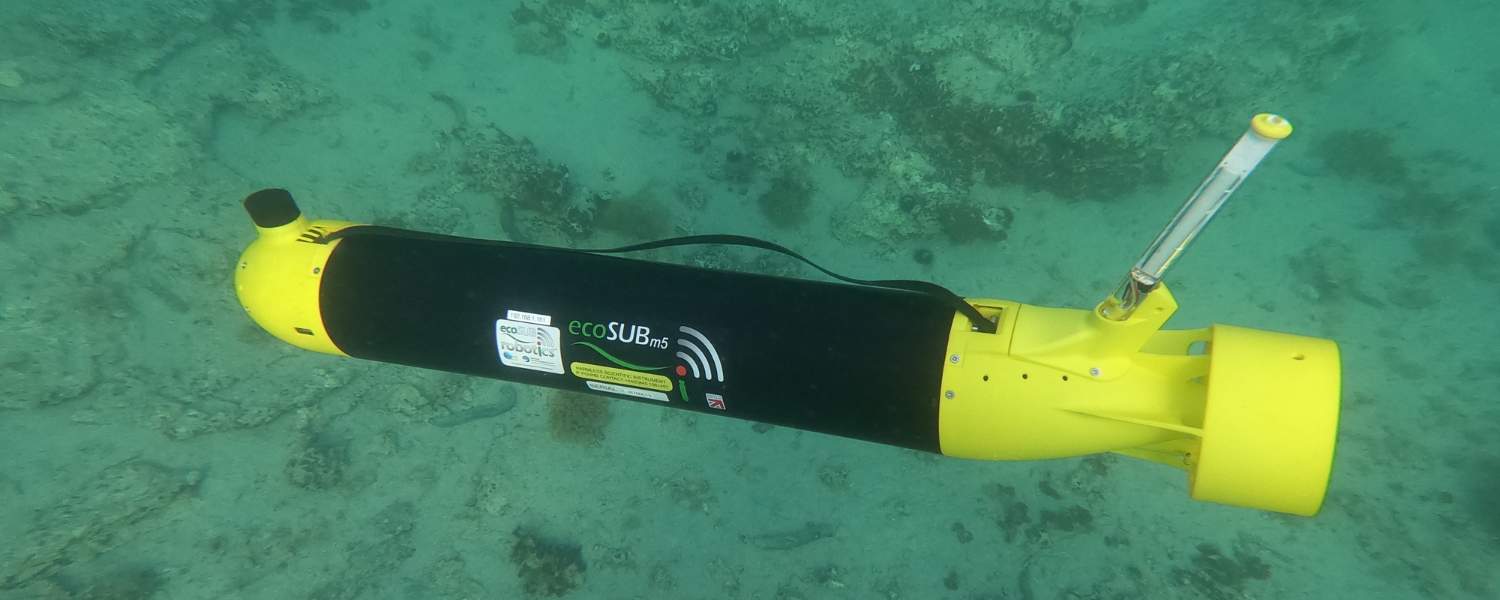Smart AUVs for detection and quantification of greenhouse gas seepage in the oceans

Active project
Project start: September 2022 |
Project end: September 2026
Funder: The Research Council of Norway
Principal Investigator: Dr Marius Dewar
SmartAUVs will dramatically improve the monitoring capabilities of AUVs, by applying artificial intelligence (AI) in concert with specialized signal processing techniques to enable AUV decision autonomy, i.e., the ability to take intelligent action in real time based on sensor input, enabling sound management of marine activities, strengthened confidence in safe CO2 storage, and insights into the amount of CH4 entering the oceans through natural- and industry related processes.
Monitoring the marine environment is a vital part of ensuring safe and sustainable marine operations and understanding the dynamics of the global carbon cycle. AUVs play a key role in marine monitoring because of their ability to cover large areas and use sensors tailored to the monitoring needs. Currently these vehicles have limited decision autonomy and therefore follow a pre-defined travel path. SmartAUVs will dramatically improve the monitoring capabilities of AUVs, by applying artificial intelligence (AI) in concert with specialized signal processing techniques to enable AUV decision autonomy, i.e., the ability to take intelligent action in real time based on sensor input. The aim is to understand critical CO2/CH4 emission scenarios and simulate these to provide detailed knowledge about plume properties. These insights determine the desired AUV behaviour including travel path and sensor usage. Intelligent algorithms for automatic leak detection are to be developed; converting raw sensor data to information based on which the AUV can act (e.g., sonar data converted to information about seepage), with AUV autonomy including situational awareness and optimized travel path. Algorithms for leak detection and adaptive behaviour will be implemented in the HUGIN AUV processing unit, and full autonomy demonstrated during field trials. The Eelume AUV will also be used during the field trials, and a basic level of decision autonomy developed and demonstrated. The HUGIN and Eelume AUVs have fundamentally different properties and complementary monitoring capabilities. SmartAUVs will contribute to improved monitoring of the oceans, which in turn will enable sound management of marine activities, strengthened confidence in safe CO2 storage, and insights into the amount of CH4 entering the oceans through natural- and industry related processes. Active industry engagement will enable efficient benefits realization.
Impact
Smart AUVs will contribute to significant technological advancements related to AUV decision autonomy, and enable reliable and affordable solutions for marine monitoring of greenhouse gas emissions. Cost-effective marine monitoring will help ensure sustainable and affordable management of marine resources, safe and publicly accepted CO2 storage, and better control over marine greenhouse gas seepage. These outcomes will contribute to reaching goal 14 of the 17 UN sustainable development goals (SDGs): SDG 14: " Conserve and sustainably use the oceans, seas and marine resources", by enabling affordable solutions for marine monitoring. Pioneering AUV decision autonomy by making use of AI technology will strengthen Norway's position as an internationally renowned provider of state-of-the-art marine monitoring solutions. A broad consortium including academia, the institute sector, stakeholders and technology providers will help ensure that these outcomes and impacts are realised.
